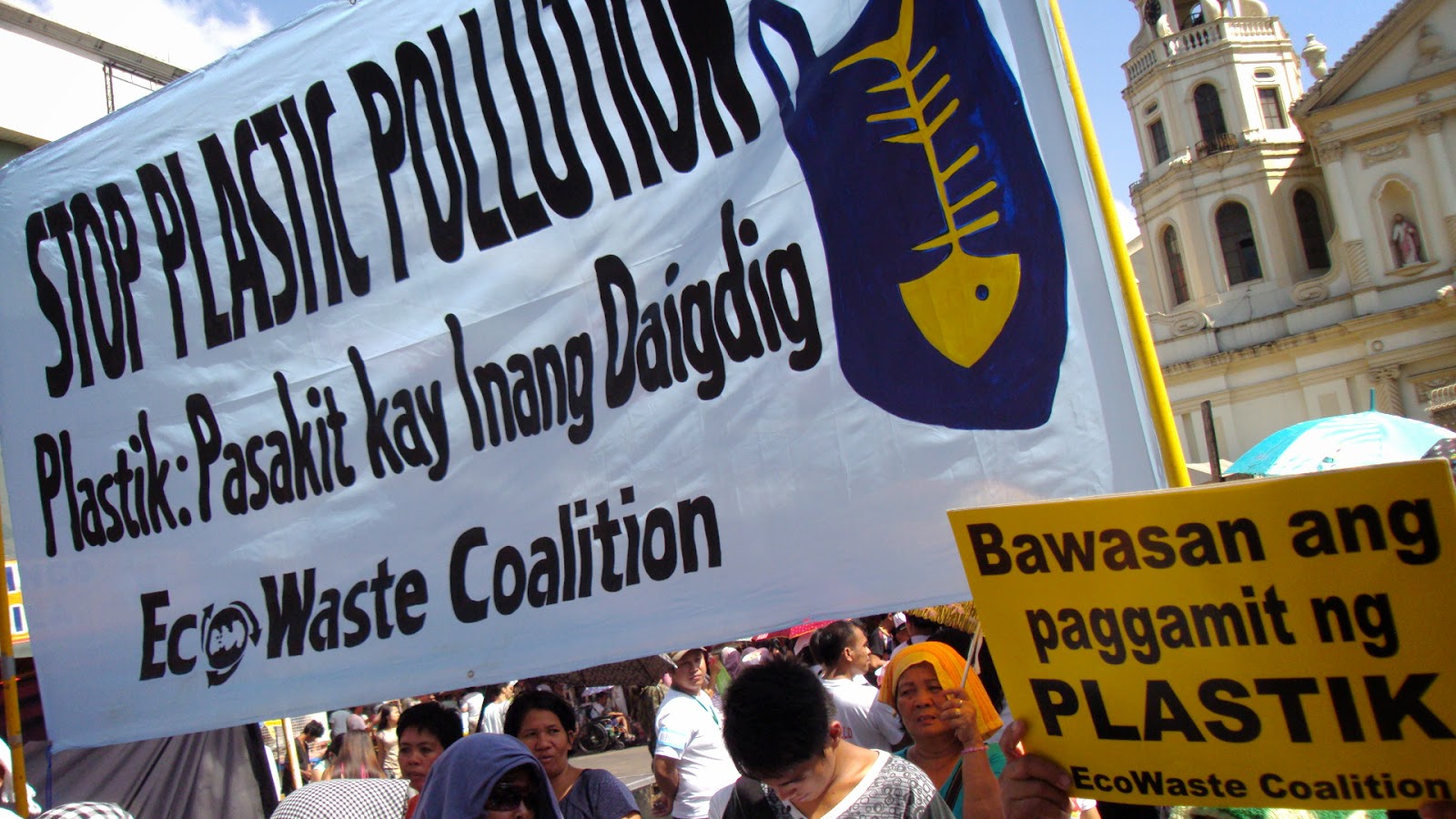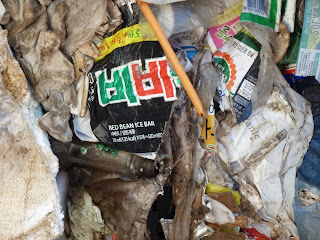Green Groups Stage Street Lenten Play in Quiapo to Dramatize Plastic Pollution (Groups Demand Zero Tolerance for Plastic Pollution)
In observance of Lent, zero waste advocates gathered in front of the Quiapo Church to draw attention to the daily “crucifixion” of Mother Earth amid the increasingly worsening throw-away, plastic culture.
In this season of reflection, atonement and cleansing,
the EcoWaste Coalition, together with the Malikhaing Landas na Magpapayabong sa
Sining at Kultura and the Gulayan People's Neighborhood Association, brought to
light the far-reaching impacts of the so-called plasticization of the society
through a mini-Senakulo involving a cast of 50 people.
With “Plastik: Pasakit kay Inang Daigdig” as its theme,
the street play showed how the people’s
uncontrolled consumption and disposal of plastics is steadily dirtying
and destroying the environment.
At the center of the street play was a suffering woman
personifying Mother Earth carrying a wire mesh shaped into a cross and filled
with plastic trash.
At one point of the play, performers waved pieces of
light blue cloth strewn with assorted garbage to create an image of an ocean
sullied by plastic as Mother Earth watched with deep sadness and despair.
“This is a factual representation of how our Mother Earth
is bearing the brunt of our wasteful consumption of plastic bags and other
expendable packaging,” Aileen Lucero, Coordinator of the EcoWaste Coalition,
pointed out.
“The thoughtless use of plastic disposables from carry
bags to water bottles and their reckless disposal in the streets, waterways,
waste burners and dumps pose a heavy burden for Mother Earth akin to carrying a
cross,” she said.
“Despite the super typhoons, devastating floods and
perennial garbage woes we go through year in and year out, many of us have yet
to recognize and understand these obvious signs of the times, consuming and
disposing of plastic irresponsibly as if Mother Earth does not suffer and weep,”
she lamented.
“It’s high time that we adopt and uphold zero tolerance
for plastic pollution,” she emphasized.
Citing a study on plastic by the Swedish Society for
Nature Conservation, a partner of the EcoWaste Coalition, Lucero noted that
“plastic bags, commonly and carelessly disposed by consumers add to the
increasing volume of waste dumped or burned in dumpsites and landfills, the
killing of marine animals, and the clogging of drainage systems worsening
already catastrophic flooding situations.”
Lucero also noted that tiny particles called
microplastics are formed when plastics disintegrate. Toxic pollutants may stick to the
microplastics, which are subsequently eaten by fish and other aquatic
organisms, entering the marine food web and harming the whole ocean ecosystems.
5Gyres, a group promoting policy solutions to end the
global health crisis of plastic pollution, has warned that such plastic
particles circulate through oceans, acting as sponges for waterborne
contaminants such as persistent organic pollutants. A study by 5Gyres estimates 269,000 tons of
plastic from 5.25 trillion particles in the world’s oceans.
In the Philippines, waste audits conducted by the
EcoWaste Coalition and other zero waste groups in 2006, 2010 and 2014 showed plastic
discards as top pollutants in the heavily-contaminated Manila Bay.
In 2014, for example, plastic materials accounted for 62
percent of the 1,594 liters of collected flotsam, with plastic bags topping the
list at 23 percent and followed by composites or plastic wrappers at 19
percent.
In this season of Lent, the EcoWaste Coalition called on
everyone who cares for Mother Earth to work for a zero waste and toxics-free
society, starting by:
- giving up addiction to plastics and going for reusable
carry bags and containers;
- taking the 3Rs (reduce, reuse, recycle and more) to
heart and wasting no more;
- practicing ecological waste management at home, school,
church and workplace;
- not dumping discards, big or small, from cigarette
butts, candy wrappers to the ubiquitous plastic bags; and by
-not burning fallen leaves, litters and other wastes.
-end-
http://www.naturskyddsforeningen.se/sites/default/files/dokument-media/rapporter/Plastic-Report.pdf
http://5gyres.org/what_is_the_issue/the_problem/








Comments